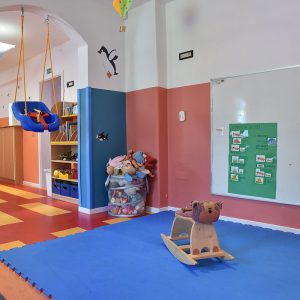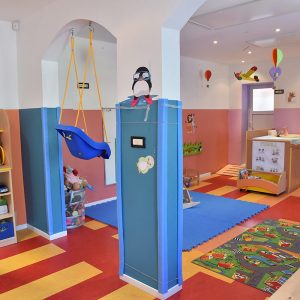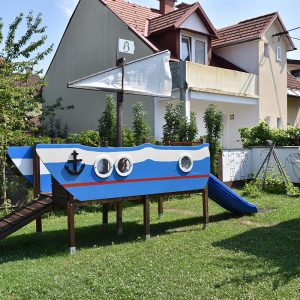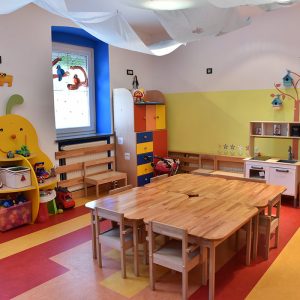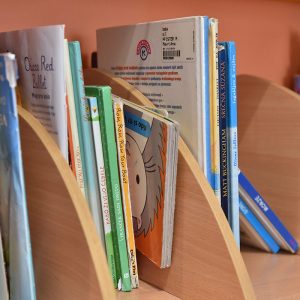This website uses cookies so that we can provide you with the best user experience possible. Cookie information is stored in your browser and performs functions such as recognising you when you return to our website and helping our team to understand which sections of the website you find most interesting and useful.
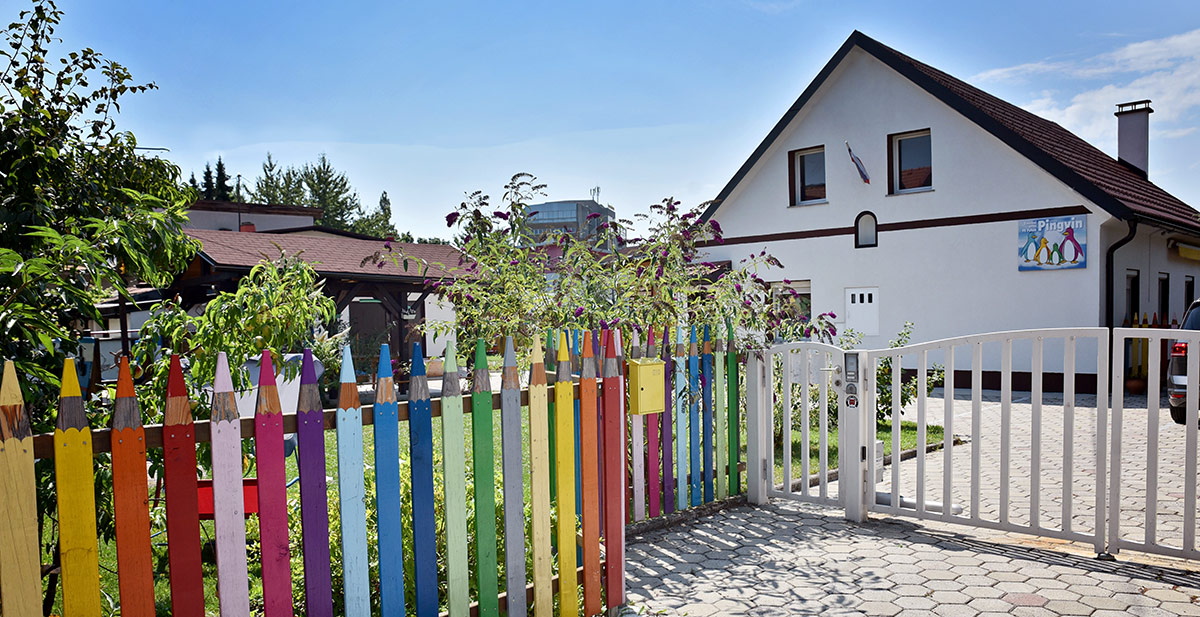
The Penguin Kindergarten has a younger brother called Puhek Kindergarten. Puhek, in English, means “fluffy” e.g baby penguin. The kindergarten is surrounded by a large garden in a peaceful neighborhood on Kamniska Street. The kindergarten was completely remodeled and brightly furnished which makes it very attractive to the little ones. The vast space offers opportunities that help children develop physical coordination, strength, and flexibility, as well as providing recreation and enjoyment . Inside, the house is designed with a big playroom to provide the necessary environment to support the children’s learning development.
At Puhek Kindergarten, programs are carefully designed to encourage each child’s growing need for independence and an emerging sense of self while nurturing intellectual growth, exploration, and socialization in a safe and supportive environment.
We strongly believe that the importance of movement in a baby sets the pathway to learning. In Puhek, we encourage and motivate movement in the early years because this is the form of activity that enables the child to learn easily and promotes successful physical and intellectual development. The need for movement and play are the primary needs of the child. The movement of the body is conditioned by the perception of the surroundings, space, time and self. In the first years of life, physical development is at the forefront which will later develop from natural and simple forms such as crawling, walking, running, and sitting to complex movement and sports activities later on.
One of the driving methods used in Puhek is Feldenkreis. Feldenkreis is a method that affects the awareness of our body. Increases mobility, relaxes and eliminates irregular movement patterns. Nowadays, children are mostly no longer on the floor since birth, but in various recliners, chairs, on the laps which lessens their ability to move. This, in effect, reduces their awareness of their own body. Many children do not even know when they fall that they have to keep their heads in the air and break the fall using their hands. All this discovery and self-awareness wouldn’t be taken away from them had they been left to explore on their own on the ground.
The Feldenkreis Method is a holistic way of looking at development and growth. The children are engaged to specific movement sequences that are playful, developmental or very specific and detailed, all while paying close attention to the process of learning and curiosity . Through fun and interesting exercises, through laughter and play, we show them how their bodies can respond and behave at different times and what they can do with their bodies. At the same time, we strengthen their confidence, balance and movement. The program is led by Tadeja Prašnikar, Certified Leader of Group Awareness Through Movement (ATM) in 2017 (Vienna 7).
Music is very important for the overall development of children as it promotes sensibility, concentration, socialization, the ability to think and other areas, so we pay special attention to it. Since September 2018, Music has been led by Mateja Tomac Calligaris, Director of the Edgar Willems Music Center. Classes are held once a week and cover all important areas of music: listening and experiencing, performing, melody, rhythm and movement with music. Mateja is a graduate of Willems Pedagogy and works on the pedagogical principles of thefamous Edgar Willems, who was one of the pioneers of music pedagogy.
Learning Music is as natural as learning one’s mother tongue – first through listening, imitation, exploration, and expression. All three human dimensions are involved in the process: the body, emotions, and intellect. The activity is adjusted to the age of the children and is being developed from year to year. Early childhood years are the most important years to develop the musical ear. All children, regardless of their initial abilities, are therefore given a quality first contact with one of the richest heritage of humanity – the art of sound and music.
Language development of children will, by their nature, be involved in all areas of activity in the group of the youngest, since pre-school is the most important for the development of speech. During this period, children learn to express the experiences, emotions, thoughts, and understand the messages of others. Various linguistic content enables children to experience language as a means of building relationships in different functions and positions in everyday activities and different social situations. At the same time, they recognize the language as a source of pleasure and fun. Listening to rhyme, they experience the sound and rhythm of speech in various voice and word games, and gradually begin to recognize and become aware of their own and foreign languages.
Through games, they learn to listen, understand, and distinguish their own and a foreign language. Therefore, in addition to the rich Slovenelanguage, other activities such as games and songs are also conducted in English. Tadeja Gomol, director of Penguin Kindergarten and Puhek, prepares interesting playtime for the young group two times a week, where toddlers learn the sound and rhythm of words in English. In this way, children will be able to learn the characteristics of a foreign language in the most tender and most sensitive period, which will later enable them to learn faster and to speak better.
The toddlers occasionally spend time socializing with the older children of Penguin Kindergarten to encourage easier and faster social learning where the children play together and learn from each other.
